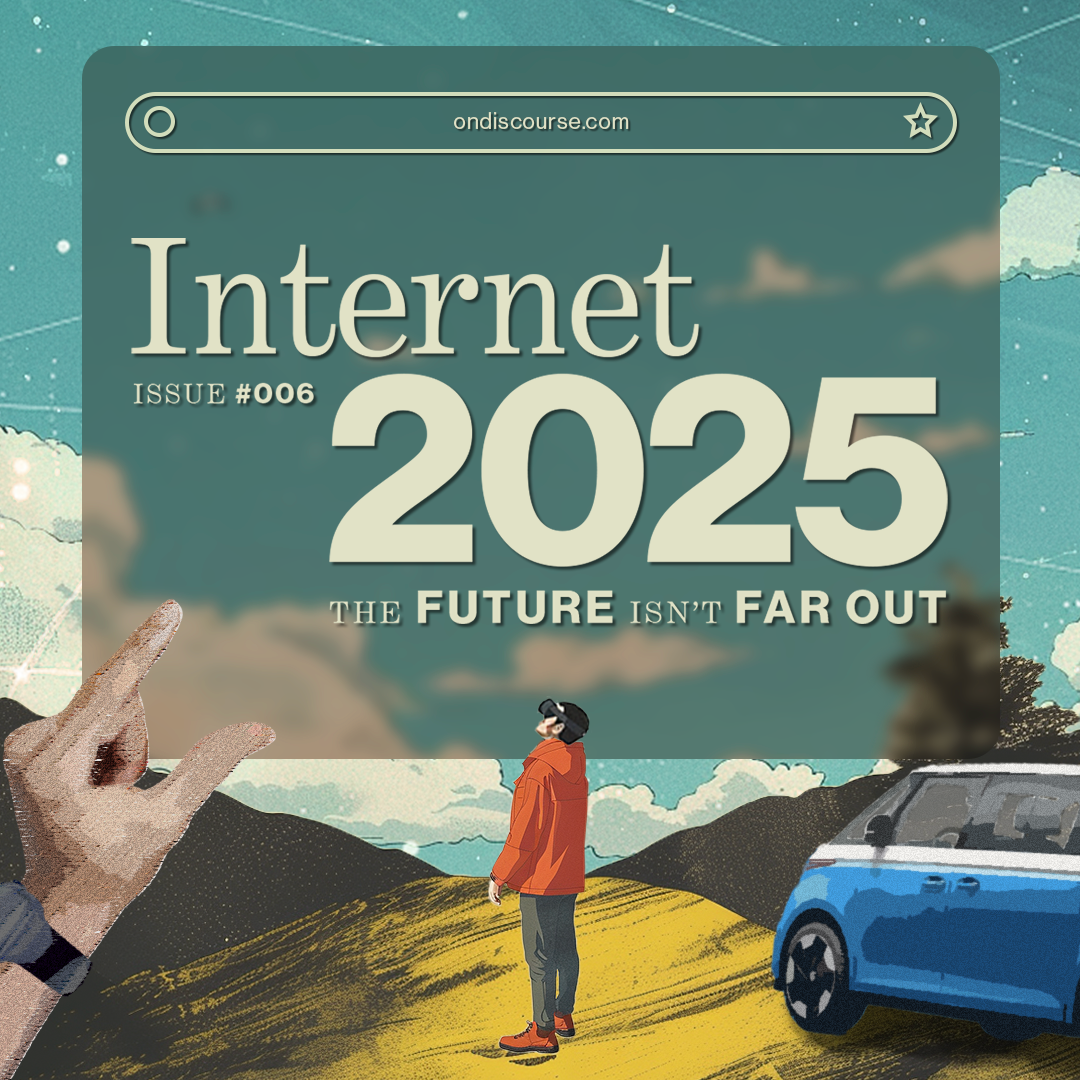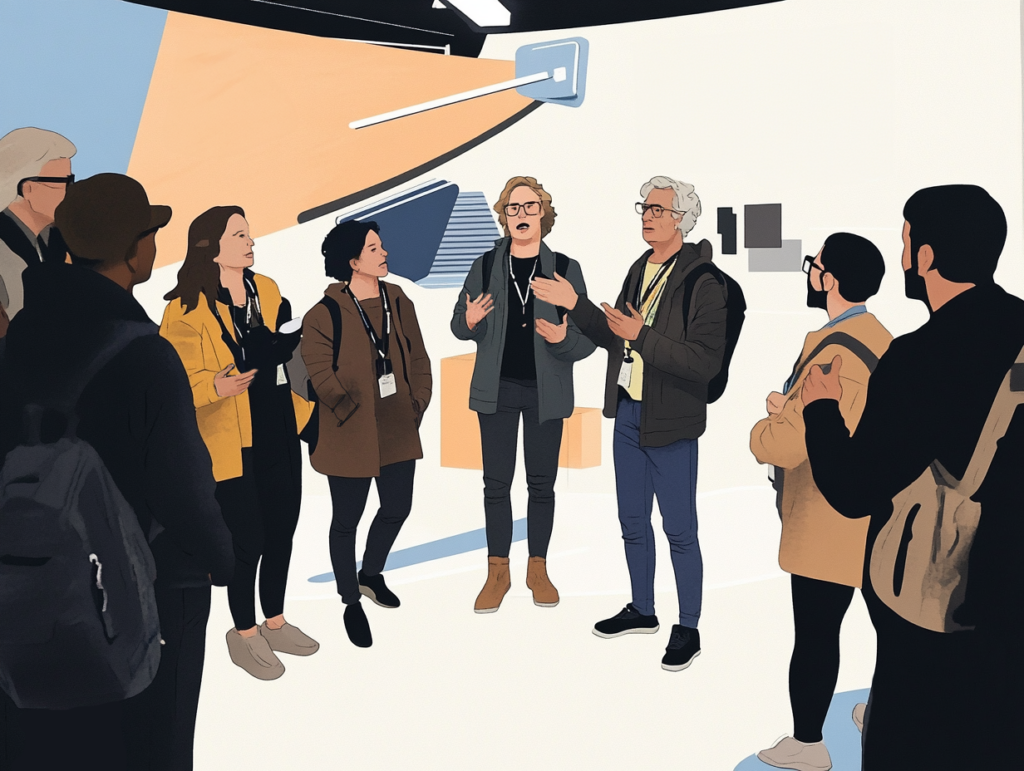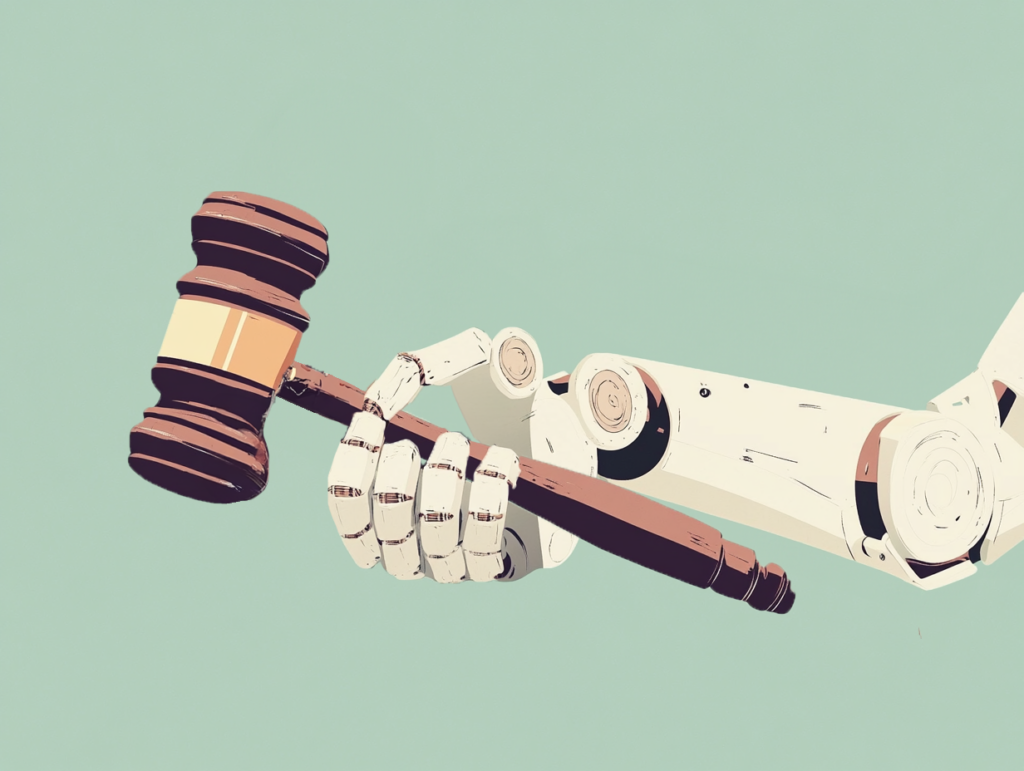Editor’s Note: We loved this perspective from Chris Perry, one of our most literary members. It frames the current technical disruptions with a critical historical context. In addition to writing great essays, Perry literally wrote the book on AI Agents. We can’t recommend it highly enough.
The sledgehammer fell in 1992. I was twenty-two, fresh out of college, and returning to my father's world. His graphic arts studio was a place I'd known growing up but never understood until I worked there with him.
Everything had changed by the time I arrived; we just hadn’t recognized it yet. The device of destruction wasn't physical. It was digital, invisible, and ruthless. The sledgehammer was Photoshop.
Until then, my Dad was a force in town. To understand him was to understand American business before it became “virtual.” He was a social animal with ambition unbound by caution or vision. His handshakes could hurt, his laughter echoed, and his stories stretched but never broke. He ran his studio as he carried himself. It was a hothouse where people who made things happen—and made things—were gods.
For two decades, they were at the center of the advertising world. In Detroit, art met industry more than anywhere else. His crew knew the essential in between—how to make a car shine on the page in ways it never quite did on the showroom floor.
His designers, drawers, typesetters, and camera techs were craft workers. It was fitting that they worked in a creative factory with a particular feel and scent that reflected the times. The chemicals could strip paint. The smell of paper emanated fresh from the cutter. The constant cigarette smoke hung like clouds around the ceiling lights. When the automation came, the air changed.
The hammer dropped, erasing everything we knew, including the feel. It happened one pixel at a time.
Chris Perry
Chairman, Futures at Weber Shandwick
Gradually, Then Suddenly
As the saying goes, Photoshop’s impact hit gradually, then suddenly. Steve Jobs introduced the Macintosh in 1984 with his famous Super Bowl commercial. It featured an actual sledgehammer thrown at conformity. Jobs didn't say then that his bicycle for the mind would become a wrecking ball for certain kinds of creative work—my Dad's era of creative work.
The Mac led to new software, most notably Photoshop. The effect wasn't immediate but gained momentum by the early 1990s. Jobs' beige computer boxes started showing up on more desktops in the workplace. Once new software was loaded into them, the creative rhythms changed. The click-click-click of mouse buttons began to drown out the scratch of pencils and the squeak of Pentel marker tips.
My Dad and his band (the present company included) didn't adapt fast or fundamentally enough. Revenue and margins shrank as clients took the work in-house. We doubled down on what we knew, only accelerating our demise. A new technology, and those who knew how to use it, dismantled the business in about 24 months.
We should have seen the hammer coming because it was already there. The lesson: Not reacting to a technological wave until it breaks over you is more than just a business failure—it can be an enduring, personal failure. I promised myself never to be caught so ill-prepared again.
Discover more discourse directly in your inbox.
Sign up for the ON_Discourse Newsletter.
Magical Automated Workflows
Photoshop turned 35 last week. If you were to imagine a single icon representing a creative transformation, it would be the "Magic Wand." One-click. That's all it took. A click and similar colors were selected as if by sorcery. Same with a click to alter the composition of an image. Ditto for envisioning variations of a scene.
What had once required careful technique and training was now available to anyone with access to the software and the patience to play and learn with it.
The magic wasn't just in what the wand could do but in what it represented. The transition from physical to digital craft offered efficiency.
Ironically, Photoshop—and the efficient workflows it led to—also came from family. Here is a bit of backstory on how it came to be.
Thomas and John Knoll grew up in a house that valued art and technology. They stood at the crossroads of two worlds, uniquely positioned to bridge them.
In 1987, Thomas Knoll wanted to display grayscale images on his Mac's black-and-white monitor. It was a practical problem with what seemed like a limited solution. His brother John, working at Industrial Light & Magic, saw further. He convinced Thomas to expand the program to handle color on the new Macintosh II. What began as a personal project caught the attention of the industry's power players.
A capability previously reserved for mainframes could now run on a PC. Adobe recognized the potential immediately, securing distribution rights in 1988 and releasing Photoshop 1.0 for Macintosh in 1990.
Photoshop didn't transform creative work in isolation. PageMaker, released by Aldus in 1985, opened the door to what would become known as desktop publishing. Photoshop and PageMaker encoded creative techniques and integrated workflows into software that creatives and producers could use directly. Those in the studio world who didn’t adapt to augmentation and changing workflows were permanently displaced.
The Magic Fades Without Imagination
Decades later, a much bigger automation wave is building. Intelligent software is reshaping all creative and knowledge work, echoing what happened in our studio.
Some automation parallels are striking. Both represent shifts from manual to digital creation and spark similar existential questions about the value of work and the identities of those who do it. With desktop publishing, page designers and typesetters rightly feared obsolescence. Today, anyone who produces knowledge, research, or creative work naturally expresses the same concerns about generative AI.
There are also critical differences between automation then and now.
Desktop publishing tools were extensions of human work. They replicated technical aspects but required direct human guidance for every decision. Generative AI tools can generate work with minimal direction, shifting human expertise from execution to curation.
Desktop tools required understanding design principles, but generative AI can produce seemingly decent output without the user knowing the underlying fundamentals.
Perhaps most significantly, the desktop publishing revolution unfolded over a decade while generative AI's capabilities are evolving at an incredible speed.
The importance of judgment, discernment, and taste in delivering commercial-grade work remains unchanged, whether we’re talking about Photoshop thirty years ago or OpenAI’s latest reasoning model today.
Consider Photoshop's meaning as a metaphor for the current moment. It automated specific, repeatable, known tasks and made technical processes faster and more accessible. However, it could not replicate the mystery of creativity or imagination, which no software has yet managed to do.
And therein lies a twist. Looking back, what reads like a family business failure doesn’t tell the whole story.
After experiencing the destruction of our business, my path reflects possibilities as a new technology destroys and creates simultaneously.
Alongside highly inventive colleagues and clients, I’ve helped create and grow new businesses built on mobile computing, e-commerce, weblogs, social networks, digital content, app development, community management, digital video, and social intelligence.
We capitalized on these tech breakthroughs not merely by understanding their specifications or original use cases but by seeing what they could lead to—by tapping into our creative capacity to imagine and bring new possibilities to life. AI is the next frontier on which to build.
Yes, AIs can encode what has been and suggest probabilities for the future. They can analyze patterns from the past with astonishing accuracy. But they cannot predict how we'll ride the next wave.
The hammer will fall, but what emerges isn’t simply destruction or dead ends. There can be a lot of light in and at the end of a transformation tunnel.
Neither my Dad nor I fully understood it in a moment of failure. It’s a reminder—then and now—that it’s hard to read the label of the jar you’re in. You have to see it from the outside.















